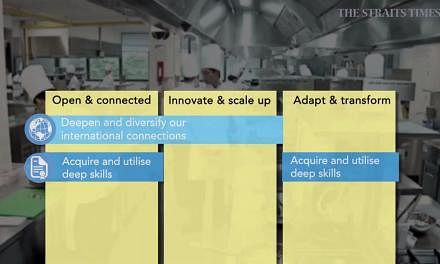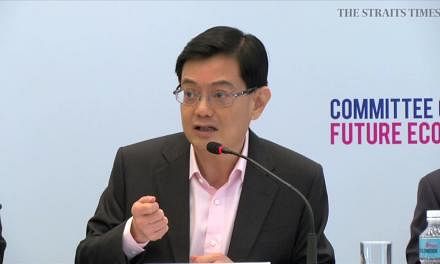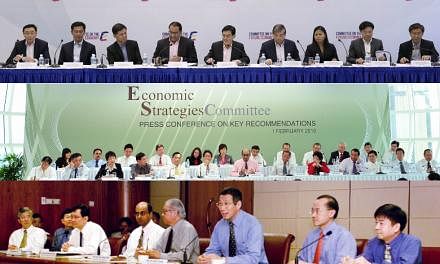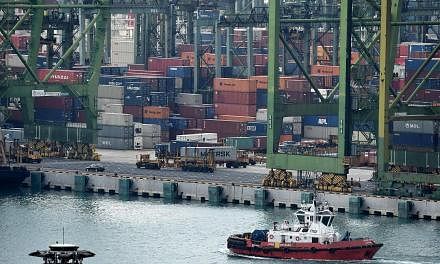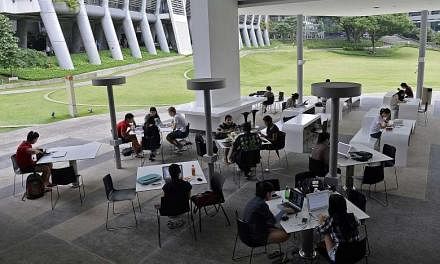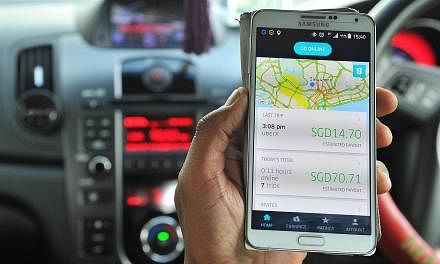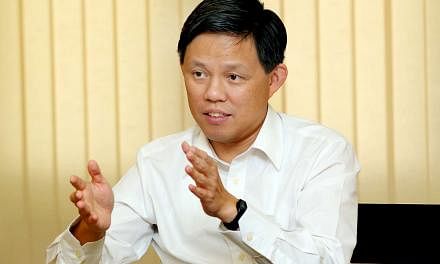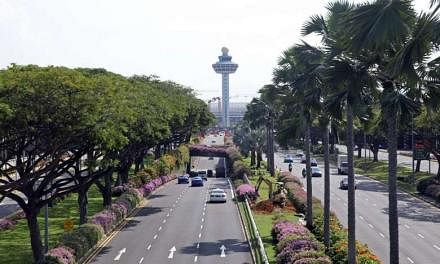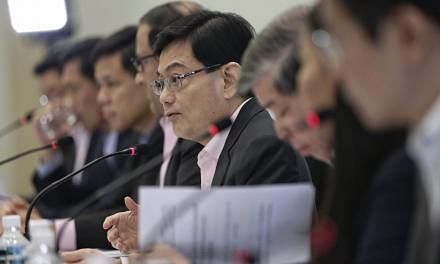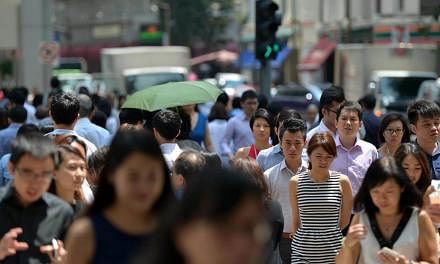Cyber security experts have given the thumbs-up to a recommendation by the Committee on the Future Economy (CFE) to use national service to train army personnel in cyber security skills to prepare for the digital future.
They said the approach takes a leaf from Israel's book, with a potential to develop Singapore's own cyber security start-ups to plug talent gaps and defend the country against cyber attacks.
The 30-member committee released its report on Thursday after a year of consulting 9,000 stakeholders - including trade associations, public agencies and companies - on ways to grow and protect Singapore's economy.
Mr Aloysius Cheang, executive vice-president of global computing security association Cloud Security Alliance, said: "Training in cyber warfare in the army will provide the new workforce with niche skills that are way more advanced than those of your typical systems administrator."
These skills include offensive tactics to cripple rivals' critical systems, and defusing cyber bombs such as malware and spyware.
"Singapore's future cyber security start-ups could come from its armed forces," said Mr Cheang.
For instance, Israeli cyber security software firm Check Point Software Technologies' three co- founders were in the Israeli army's elite intelligence unit before starting the company in 1993.
Israel's strength in cyber warfare is well known, with military experience playing a key role. The small country is also one of the world's largest exporters of cyber security products and services - second only to the United States.
Mr Benjamin Ang, coordinator of the Cybersecurity Programme at the Centre of Excellence for National Security at the S. Rajaratnam School of International Studies, said: "Singapore should learn from those that have successfully used their national service programmes to develop young talent."
Mr Clement Lee, security architect for Asia, Middle East and Africa at Check Point, said the recommendation is "a good move" amid rising cyber threats and the severe lack of security professionals globally.
Mr Clement Teo, principal analyst at market research firm Ovum, said that Singapore's Smart Nation initiative has made it even more urgent now to step up on developing the country's in-house talent. "We can't outsource the nation's cyber defence to third parties," he said.
Meanwhile, Mr Jeffrey Kok, CyberArk's director of Asia-Pacific and Japan, said that cyber security training is "a natural extension" of NS to protect Singapore's assets.
The Singapore Government, which accepted the CFE's recommendation, will discuss ways to implement the idea during the Budget and Committee of Supply debates starting later this month.
Centre of Excellence for National Security's Mr Ang said that for the idea to work, the Singapore army also needs to mentor its elite cyber soldiers to become team players and leaders. Being the brightest academically is not enough.
Mr Daljit Sall, director of human resources firm Randstad Technologies Singapore, said that the firm has seen a 35 per cent increase in demand for cyber security professionals over the past year.


